
Description
Robert Greenberg – How to Listen to and Understand Opera download, Robert Greenberg – How to Listen to and Understand Opera review, Robert Greenberg – How to Listen to and Understand Opera free
Robert Greenberg – How to Listen to and Understand Opera
How to Listen to and Understand Opera
Discover the great beauty and high artistic achievement of opera with this brilliant course by acclaimed musicologist Robert Greenberg.
LECTURE (32)
01:Introduction and Words and Music, I
In the first two lectures we develop a methodology for listening to and understanding opera. We are introduced to the concept of opera as a whole that is greater than the sum of its parts in its combination of soliloquy, dialogue, scenery, action, and continuous music. We see how music can evoke what words cannot express; the composer is the dramatist. This combination of words and music endows op…
02:Introduction and Words and Music, II
In the first two lectures we develop a methodology for listening to and understanding opera. We are introduced to the concept of opera as a whole that is greater than the sum of its parts in its combination of soliloquy, dialogue, scenery, action, and continuous music. We see how music can evoke what words cannot express; the composer is the dramatist. This combination of words and music endows op…
03:A Brief History of Vocal Expression in Music, I
Throughout the history of European music, style and form have changed constantly. Beginning in ancient Greece, we trace the history of vocal music through the Middle Ages and the Renaissance. We focus on the rise of popular secular music in a world hitherto dominated by the music of the Roman Catholic Church. Renaissance composers turned increasingly to the ancient Greek ideal for inspiration. The…
04:A Brief History of Vocal Expression in Music, II
Throughout the history of European music, style and form have changed constantly. Beginning in ancient Greece, we trace the history of vocal music through the Middle Ages and the Renaissance. We focus on the rise of popular secular music in a world hitherto dominated by the music of the Roman Catholic Church. Renaissance composers turned increasingly to the ancient Greek ideal for inspiration. The…
05:Invention of Opera and Monteverdi’s Orfeo, I
In Lectures 5 through 8 we review the Greek idea of music as it related to music of the Renaissance. We see the evolution of intermezzo as a precursor to the first real opera. We look at the role of the Florentine Camerata in the development of opera, and we examine in depth the first real opera, Monteverdi’s Orfeo of 1607….
06:Invention of Opera and Monteverdi’s Orfeo, II
In Lectures 5 through 8 we review the Greek idea of music as it related to music of the Renaissance. We see the evolution of intermezzo as a precursor to the first real opera. We look at the role of the Florentine Camerata in the development of opera, and we examine in depth the first real opera, Monteverdi’s Orfeo of 1607….
07:Invention of Opera and Monteverdi’s Orfeo, III
In Lectures 5 through 8 we review the Greek idea of music as it related to music of the Renaissance. We see the evolution of intermezzo as a precursor to the first real opera. We look at the role of the Florentine Camerata in the development of opera, and we examine in depth the first real opera, Monteverdi’s Orfeo of 1607….
08:Invention of Opera and Monteverdi’s Orfeo, IV
In Lectures 5 through 8 we review the Greek idea of music as it related to music of the Renaissance. We see the evolution of intermezzo as a precursor to the first real opera. We look at the role of the Florentine Camerata in the development of opera, and we examine in depth the first real opera, Monteverdi’s Orfeo of 1607….
09:The Growth of Opera, the Development of Italian Opera Seria, and Mozart’s Idomeneo, I
Lectures 9 through 12 review the main features of early opera and trace its growth from the early 17th century up to Mozart’s Idomeneo of 1781. As opera became a public entertainment, its literary and dramatic substance deteriorated. We learn how the formulaic rigidity of opera seria led to vocal abuses, and how Gluck represented a new wave of reform, creating the model for the next generation of …
10:The Growth of Opera, the Development of Italian Opera Seria, and Mozart’s Idomeneo, II
Lectures 9 through 12 review the main features of early opera and trace its growth from the early 17th century up to Mozart’s Idomeneo of 1781. As opera became a public entertainment, its literary and dramatic substance deteriorated. We learn how the formulaic rigidity of opera seria led to vocal abuses, and how Gluck represented a new wave of reform, creating the model for the next generation of …
11:The Growth of Opera, the Development of Italian Opera Seria, and Mozart’s Idomeneo, III
Lectures 9 through 12 review the main features of early opera and trace its growth from the early 17th century up to Mozart’s Idomeneo of 1781. As opera became a public entertainment, its literary and dramatic substance deteriorated. We learn how the formulaic rigidity of opera seria led to vocal abuses, and how Gluck represented a new wave of reform, creating the model for the next generation of …
12:The Growth of Opera, the Development of Italian Opera Seria, and Mozart’s Idomeneo, IV
Lectures 9 through 12 review the main features of early opera and trace its growth from the early 17th century up to Mozart’s Idomeneo of 1781. As opera became a public entertainment, its literary and dramatic substance deteriorated. We learn how the formulaic rigidity of opera seria led to vocal abuses, and how Gluck represented a new wave of reform, creating the model for the next generation of …
13:The Rise of Opera Buffa and Mozart’s The Marriage of Figaro, I
In this study of comic opera-opera buffa-we see how comic opera, with its roots in popular folklore, developed separately from the opera seria of the aristocracy. We learn how the more accessible, populist opera buffa was championed by Enlightenment progressives such as Jean-Jacques Rousseau. Opera buffa character types and conventions are discussed, and one of the greatest examples of opera buffa…
14:The Rise of Opera Buffa and Mozart’s The Marriage of Figaro, II
In this study of comic opera-opera buffa-we see how comic opera, with its roots in popular folklore, developed separately from the opera seria of the aristocracy. We learn how the more accessible, populist opera buffa was championed by Enlightenment progressives such as Jean-Jacques Rousseau. Opera buffa character types and conventions are discussed, and one of the greatest examples of opera buffa…
15:The Rise of Opera Buffa and Mozart’s The Marriage of Figaro, III
In this study of comic opera-opera buffa-we see how comic opera, with its roots in popular folklore, developed separately from the opera seria of the aristocracy. We learn how the more accessible, populist opera buffa was championed by Enlightenment progressives such as Jean-Jacques Rousseau. Opera buffa character types and conventions are discussed, and one of the greatest examples of opera buffa…
16:The Rise of Opera Buffa and Mozart’s The Marriage of Figaro, IV
In this study of comic opera-opera buffa-we see how comic opera, with its roots in popular folklore, developed separately from the opera seria of the aristocracy. We learn how the more accessible, populist opera buffa was championed by Enlightenment progressives such as Jean-Jacques Rousseau. Opera buffa character types and conventions are discussed, and one of the greatest examples of opera buffa…
17:The Bel Canto Style and Rossini’s The Barber of Seville, I
Lectures 17 and 18 discuss bel canto, the dominant style of 19th-century Italian opera. Its features of appealing melodies and florid melodic embellishments are suited to the Italian language. Bel canto operas are based on comic, predictable plots and one-dimensional characters to indulge the contemporary Italian taste for pure entertainment. Our frame of reference is the landmark bel canto opera,…
18:The Bel Canto Style and Rossini’s The Barber of Seville, II
Lectures 17 and 18 discuss bel canto, the dominant style of 19th-century Italian opera. Its features of appealing melodies and florid melodic embellishments are suited to the Italian language. Bel canto operas are based on comic, predictable plots and one-dimensional characters to indulge the contemporary Italian taste for pure entertainment. Our frame of reference is the landmark bel canto opera,…
19:Verdi and Otello, I
The Italian composer Giuseppe Verdi and opera seria are the focus of Lectures 19 through 22. We learn how Verdi dominated the operatic scene in Italy for more than half a century by the power of his beautiful melodies and his focus on human emotions and psychological insight. We see how Verdi gave the orchestra an increasingly important role in the drama, and how he used technique to endow his ope…
20:Verdi and Otello, II
The Italian composer Giuseppe Verdi and opera seria are the focus of Lectures 19 through 22. We learn how Verdi dominated the operatic scene in Italy for more than half a century by the power of his beautiful melodies and his focus on human emotions and psychological insight. We see how Verdi gave the orchestra an increasingly important role in the drama, and how he used technique to endow his ope…
21:Verdi and Otello, III
The Italian composer Giuseppe Verdi and opera seria are the focus of Lectures 19 through 22. We learn how Verdi dominated the operatic scene in Italy for more than half a century by the power of his beautiful melodies and his focus on human emotions and psychological insight. We see how Verdi gave the orchestra an increasingly important role in the drama, and how he used technique to endow his ope…
22:Verdi and Otello, IV
The Italian composer Giuseppe Verdi and opera seria are the focus of Lectures 19 through 22. We learn how Verdi dominated the operatic scene in Italy for more than half a century by the power of his beautiful melodies and his focus on human emotions and psychological insight. We see how Verdi gave the orchestra an increasingly important role in the drama, and how he used technique to endow his ope…
23:French Opera, I
In Lectures 23 and 24 we give an overview of the evolution of a distinctly French style; explain why and how French opera is different from Italian opera; and emphasize that operatic content, both musical and dramatic, is most often a function of the language, politics, and economic class of its consumers. French opera composers discussed include Jean-Baptiste Lully, Jean-Philippe Rameau, Jean-Jac…
24:French Opera, II
In Lectures 23 and 24 we give an overview of the evolution of a distinctly French style; explain why and how French opera is different from Italian opera; and emphasize that operatic content, both musical and dramatic, is most often a function of the language, politics, and economic class of its consumers. French opera composers discussed include Jean-Baptiste Lully, Jean-Philippe Rameau, Jean-Jac…
25:German Opera Comes of Age
In this lecture we learn how German opera owed its evolution to German folklore and the requirements of the German language. We see how it came into being with Mozart’s The Magic Flute of 1791, and how it was indebted to the traditional German entertainment of singspiel. Weber’s Der Freishütz is examined as the work that established 19th-century German opera….
26:Richard Wagner and Tristan und Isolde, I
Lectures 26 and 27 examine the contribution of the paradoxical Richard Wagner to operatic history. Wagner’s life and career is summarized. We look at Wagner’s theories, his admiration for ancient Greek drama, and his invention of leitmotif. Schopenhauer’s philosophy and its influence on Wagner’s concept of music drama are also discussed. Finally, we examine Wagner’s landmark opera Tristan und Isol…
27:Richard Wagner and Tristan und Isolde, II
Lectures 26 and 27 examine the contribution of the paradoxical Richard Wagner to operatic history. Wagner’s life and career is summarized. We look at Wagner’s theories, his admiration for ancient Greek drama, and his invention of leitmotif. Schopenhauer’s philosophy and its influence on Wagner’s concept of music drama are also discussed. Finally, we examine Wagner’s landmark opera Tristan und Isol…
28:Late Romantic German Opera-Richard Strauss and Salome
In this lecture, Richard Strauss’s opera Salome is discussed as an example of late romantic German opera. After an overview of Strauss’s early life, we examine his psychopathological and erotic Salome and the reasons why it is one of the most controversial operas of all time….
29:Russian Opera, I
This lecture on Russian opera traces the causes, history, and character of Russian musical nationalism. Glinka and his opera Ruslan and Lyudmila are discussed as the foundation of Russian opera leading the way for The Russian Five and the pinnacle of Russian nationalist opera, Mussorgsky’s Boris Godunov….
30:Russian Opera, II
This lecture on Russian opera traces the causes, history, and character of Russian musical nationalism. Glinka and his opera Ruslan and Lyudmila are discussed as the foundation of Russian opera leading the way for The Russian Five and the pinnacle of Russian nationalist opera, Mussorgsky’s Boris Godunov….
31:Verismo, Puccini, and Tosca, I
The final lectures examine opera verismo: its origins, character, and greatest exponent-Giacomo Puccini. Puccini’s virtues and faults are discussed-especially his marvelous power of lyricism, sometimes pursued at the expense of dramatic reality. The second act of Tosca is analyzed as an example of his style and as one of the most powerful acts in all opera. The study concludes with a musical illus…
32:Verismo, Puccini, and Tosca, II
The final lectures examine opera verismo: its origins, character, and greatest exponent-Giacomo Puccini. Puccini’s virtues and faults are discussed-especially his marvelous power of lyricism, sometimes pursued at the expense of dramatic reality. The second act of Tosca is analyzed as an example of his style and as one of the most powerful acts in all opera. The study concludes with a musical illus…
DETAILS
Overview
For more than 400 years, opera has been one of the most popular performing arts. Professor Robert Greenberg can show you how you can learn to understand, appreciate&;amp;-even to love&;amp;-opera in just 32 lectures. With the knowledge of opera from this course, you will understand how opera is a unique marriage of words and music in which the whole is far greater than its parts. You will learn the reasons for opera’s enduring popularity. And you will be able to explore in great depth the extraordinary and compelling world of opera.
About
Robert Greenberg
“For thousands of years cultures have celebrated themselves through their music. Let us always be willing and able to join that celebration by listening as carefully as we can to what, through music, we have to say to one another.”
ALMA MATER University of California, Berkeley
INSTITUTION San Francisco Performances
Dr. Robert Greenberg is Music Historian-in-Residence with San Francisco Performances. A graduate of Princeton University, Professor Greenberg holds a Ph.D. in Music Composition from the University of California, Berkeley. He has seen his compositions-which include more than 45 works for a wide variety of instrumental and vocal ensembles-performed all over the world, including New York, San Francisco, Chicago, Los Angeles, England, Ireland, Greece, Italy, and the Netherlands.
He has served on the faculties of the University of California, Berkeley; California State University, Hayward; and the San Francisco Conservatory of Music, and has lectured for some of the most prestigious musical and arts organizations in the United States, including the San Francisco Symphony, the Lincoln Center for the Performing Arts, the Van Cliburn Foundation, and the Chicago Symphony. For The Great Courses, he has recorded more than 500 lectures on a range of composers and classical music genres.
Professor Greenberg is a Steinway Artist. His many other honors include three Nicola de Lorenzo Composition Prizes and a Koussevitzky commission from the Library of Congress. He has been profiled in various major publications, including The Wall Street Journal; Inc. magazine; and the London Times.
Frequently Asked Questions:
- Innovative Business Model:
- Embrace the reality of a genuine business! Our approach involves forming a group buy, where we collectively share the costs among members. Using these funds, we purchase sought-after courses from sale pages and make them accessible to individuals facing financial constraints. Despite potential reservations from the authors, our customers appreciate the affordability and accessibility we provide.
- The Legal Landscape: Yes and No:
- The legality of our operations falls into a gray area. While we lack explicit approval from the course authors for resale, there’s a technicality at play. When procuring the course, the author didn’t specify any restrictions on resale. This legal nuance presents both an opportunity for us and a boon for those seeking budget-friendly access.
- Quality Assurance: Unveiling the Real Deal:
- Delving into the heart of the matter – quality. Acquiring the course directly from the sale page ensures that all documents and materials are identical to those obtained through conventional means. However, our differentiator lies in going beyond personal study; we take an extra step by reselling. It’s important to note that we are not the official course providers, meaning certain premium services aren’t included in our package:
- No coaching calls or scheduled sessions with the author.
- No access to the author’s private Facebook group or web portal.
- No entry to the author’s exclusive membership forum.
- No direct email support from the author or their team.
We operate independently, aiming to bridge the affordability gap without the additional services offered by official course channels. Your understanding of our unique approach is greatly appreciated.
- Delving into the heart of the matter – quality. Acquiring the course directly from the sale page ensures that all documents and materials are identical to those obtained through conventional means. However, our differentiator lies in going beyond personal study; we take an extra step by reselling. It’s important to note that we are not the official course providers, meaning certain premium services aren’t included in our package:
Refund is acceptable:
- Firstly, item is not as explained
- Secondly, Item do not work the way it should.
- Thirdly, and most importantly, support extension can not be used.
Thank you for choosing us! We’re so happy that you feel comfortable enough with us to forward your business here.

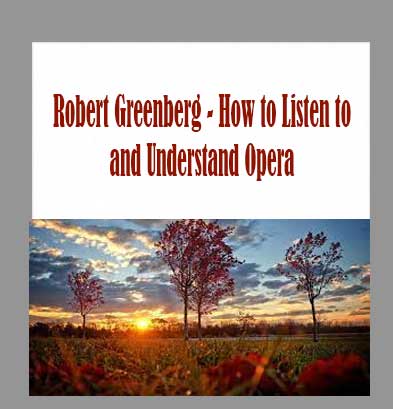
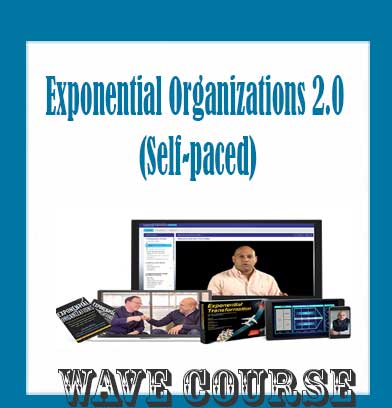
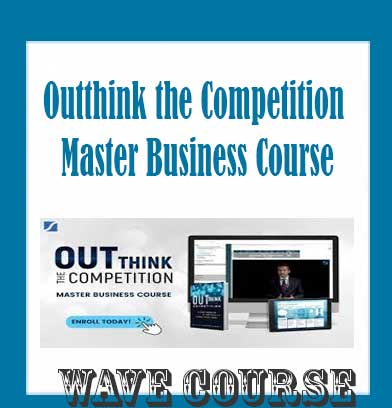
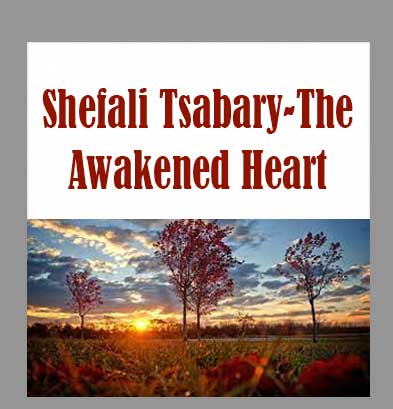

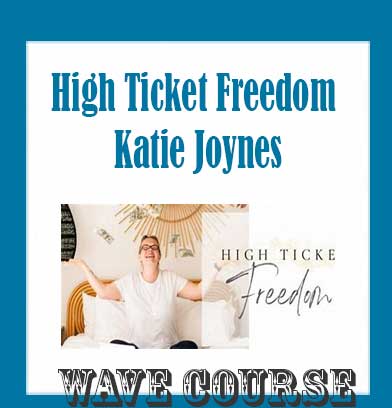
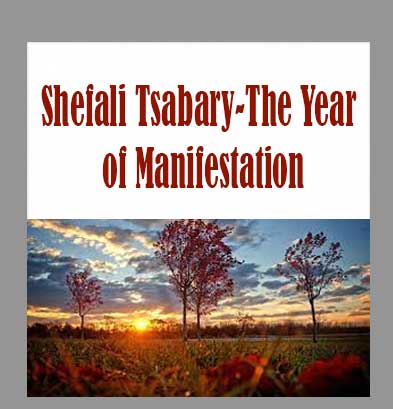
Reviews
There are no reviews yet.